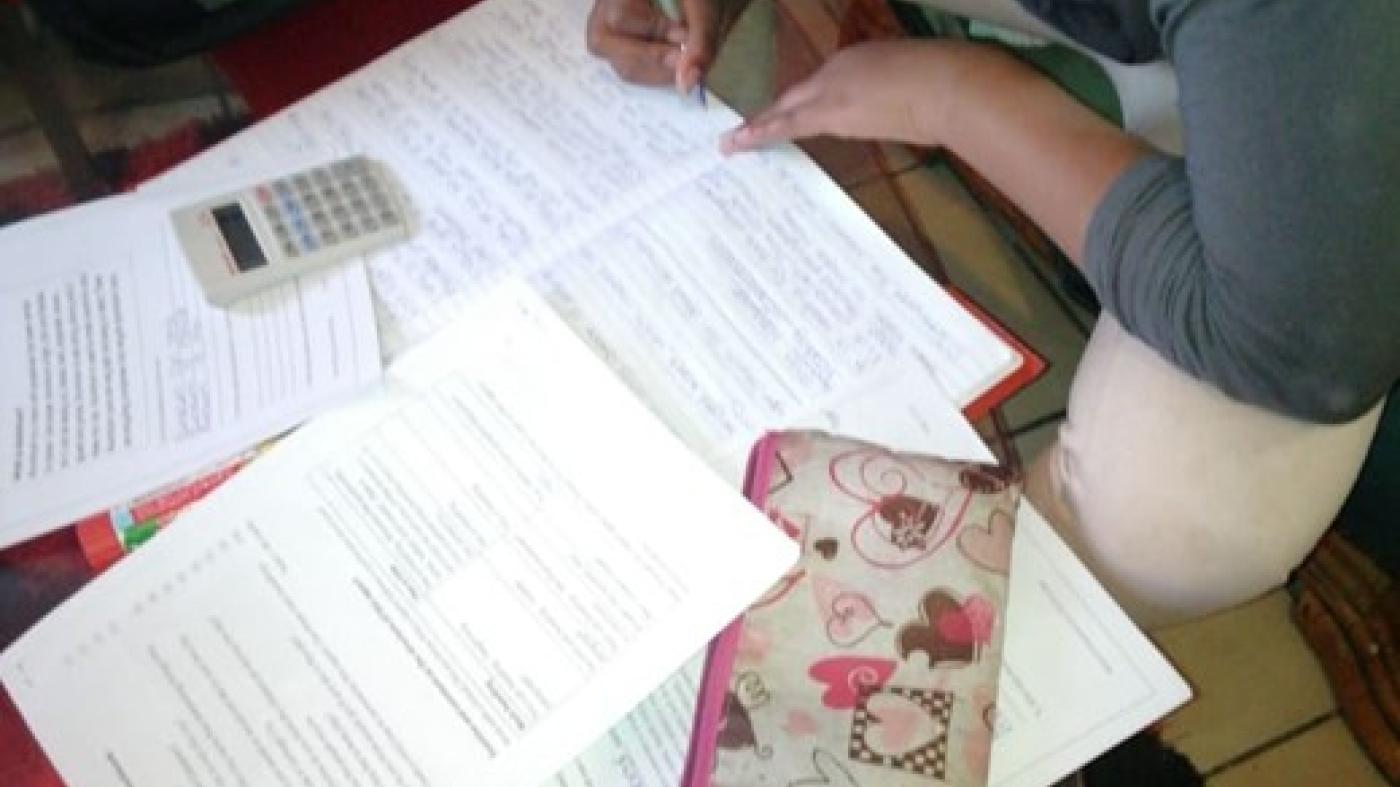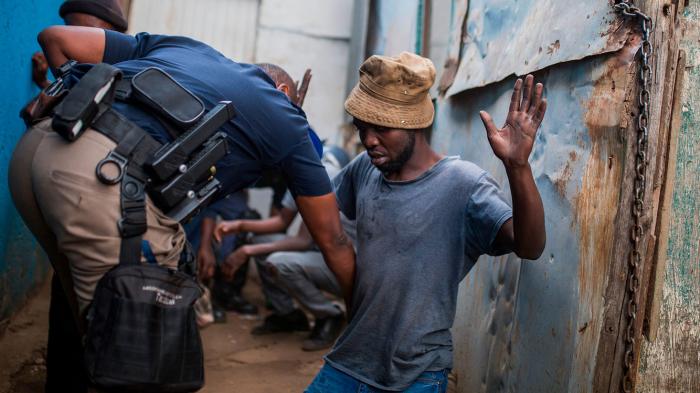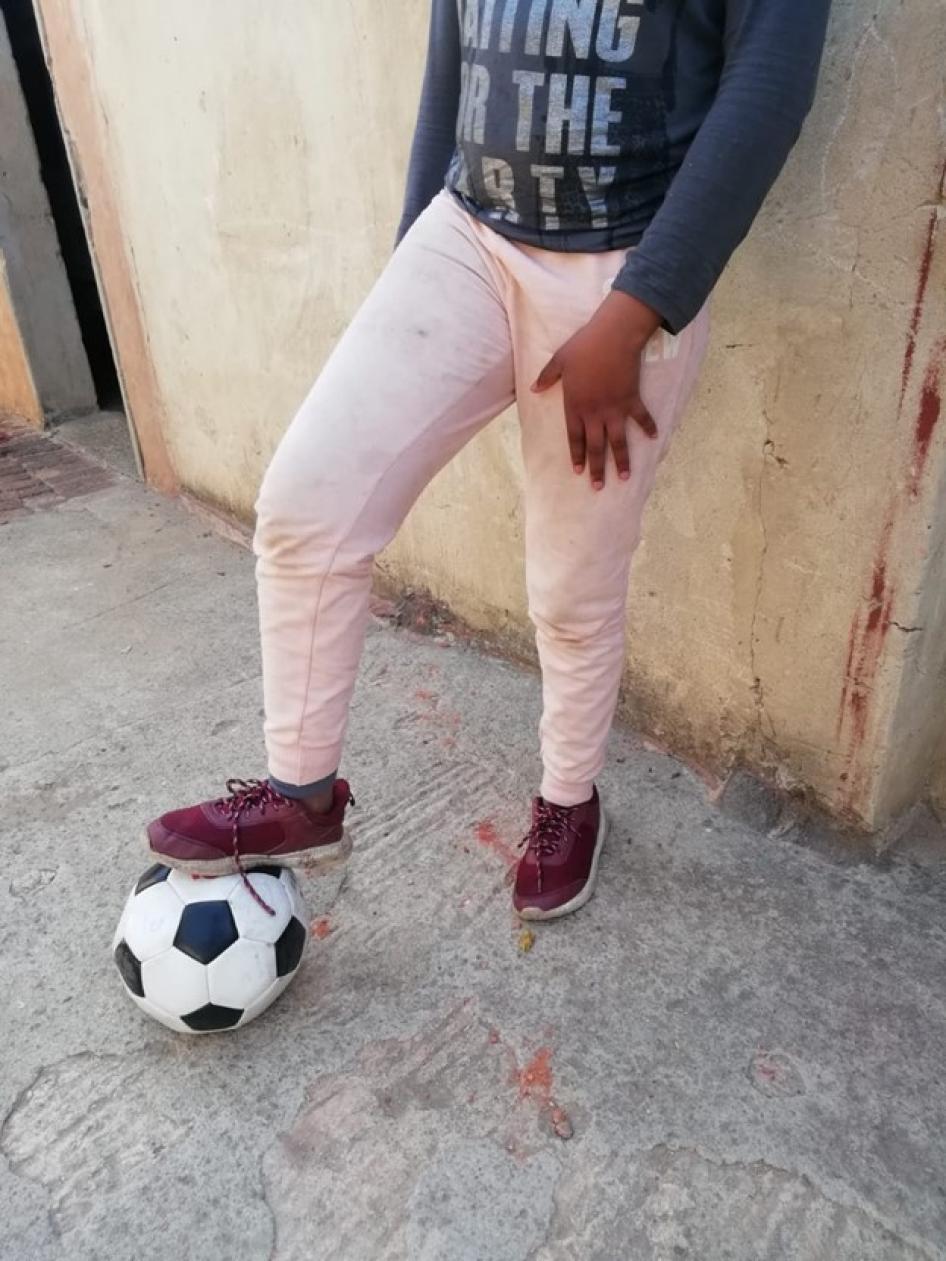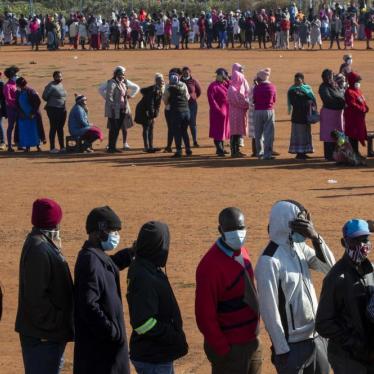Born in Johannesburg to parents who, having fled war and persecution in the Democratic Republic of Congo, sought asylum in South Africa, Keshia already knows what it means not to belong. Her schoolmates, for one, make sure she’s put in her place and never forgets she is a kwerekwere, an “alien,” in their eyes.
“You’re so stupid,” they call after her. “You just come here and do nothing.”
Despite having gained permanent residency some years ago, her father, a street vendor, has yet to be issued a South African ID and has found making a living increasingly difficult, as wave after wave of xenophobic violence has targeted him, other foreign merchants, and foreign-owned businesses. Her mother, who after 13 years in the country still has not officially been granted asylum, has long given up selling second-hand clothes in neighborhood markets because of the hostility of local hawkers. Yet still, to Keshia’s growing despair, her parents have not answered her insistent question: “When can we leave?”
For many African and Asian foreigners in South Africa, harassment and violent attacks are a daily reality. A new Human Rights Watch report, “They Have Robbed Me of My Life”, found that, despite the launch in March last year of the National Action Plan to combat racism, racial discrimination, xenophobia, and related intolerance, little is changing for these families. With politicians denying the xenophobic nature of attacks and even stoking the fires by pandering to populist sentiments, the cycle of violence continues. Meanwhile, orchestraters and perpetrators of violence are rarely prosecuted.
Accused of stealing jobs and women, depleting the country’s basic services, spreading diseases, and running crime syndicates, African and Asian foreigners have become the targets of hate-filled calls to action, lootings, and waves of violent attacks time and again. Hundreds have been injured and displaced; dozens have died. In a country where violent crime is an ever-present threat, unemployment is rampant, and inequality levels are among the highest in the world, refugees and migrants like Keshia and her parents have been made the scapegoats for the nation’s ills and government’s failure to deliver.
Keshia has almost lost count of how often her dad has been attacked, robbed, and beaten up for the sole reason of not being South African. Her mother, too, has been beaten, spat on, and robbed. Once she came home from grocery shopping with her eyes all swollen and her face bruised. The attackers, three South Africans, slapped and punched her because she was unable to answer their greetings in isiZulu, the most widely spoken indigenous language in South Africa.
Her parents’ efforts to seek justice were futile. Attempts to report the attacks to the police have been met with indifference at best. Only once did detectives actually come to investigate: when three strangers opened fire on their home in the middle of the night and a bullet penetrated a bedroom window. The cartridge was found; the attackers, however, remain at large.
Lack of follow up, unwillingness to open a case, and indifference are frequent responses encountered by foreigners when reporting incidents to the police. Many victims don’t even try to file complaints anymore.
At the height of the latest nationwide wave of xenophobic violence in September last year, Keshia was knocked down by a car on her way to school and the driver sped away. She was left in the road with a bleeding arm, crying for her mum. No ambulance came. A bystander – herself a foreigner – helped her up and took down the number plate of the car. No one was ever arrested for the hit-and-run.
Once, a South African unleashed a dog on Keshia in a park. She stumbled and fell and lost a front tooth trying to get away from the animal. Yet the officer at the nearest police station wouldn’t even talk to her and her mum. “The policeman was mean,” says Keshia. She couldn’t understand a word exchanged between the officer and dog owner, as both spoke isiZulu, but there was no mistaking the hostile tone. “These people don’t like us here. We must go back to our country.”
What she doesn’t know, and what her dad struggles to make her understand, is that although much has changed in the Democratic Republic of Congo since he fled 19 years ago, there are still armed conflicts in the province he hails from, South Kivu. Massacres of civilians, fighting between militias and the army, and mass displacements remain part of people’s reality in eastern Congo. This is what has stopped him from relocating his family back to his home country. But it pains him to see how severely the deep dislike of non-nationals in South Africa has affected his children, especially Keshia.
“Every time my parents get attacked, it affects me,” says Keshia. And with the maturity of a child who had to grow up too fast, she adds, “We are a family, so if one is in pain, we all feel pain.”
Keshia wants to become an accountant, like her dad was once, before he had to flee war and persecution. But going to school feels more and more like running the gauntlet. The harassment seems unstoppable. Even the teachers at her public school have given up trying to discipline the bullies, and have advised her to avoid them, which is impossible. “They should be expelled,” she says angrily. But having in vain tried to tell them off herself, she has learned to keep quiet. Her friendship with another refugee girl helps her process some of her anger and anxiety. During break, the two are often seen eating and chatting together, trying to heed their teachers’ advice to ignore the insults. The experience of being made to feel like unwanted outsiders is often a topic of their conversations. Only when playing netball, running and jumping about, does Keshia feel carefree. But with every new attack on her family, the urge to pack up and go becomes stronger. “It will be better in Congo,” she says. “They will just accept me. I just want to be normal. Normal is like peace for foreigners.”
This piece is based on interviews with and by Human Rights Watch fellow Kristi Ueda.






